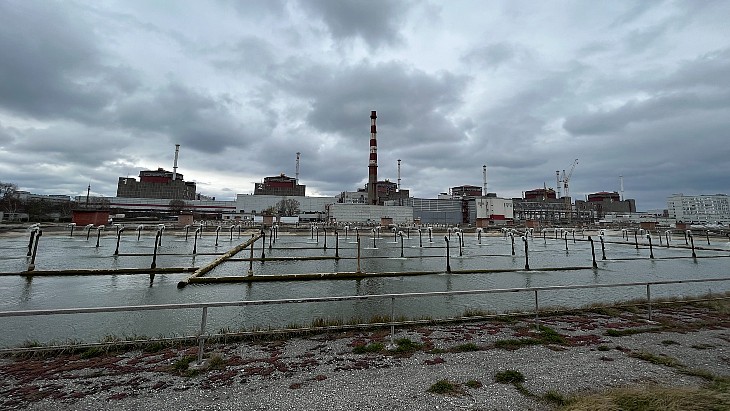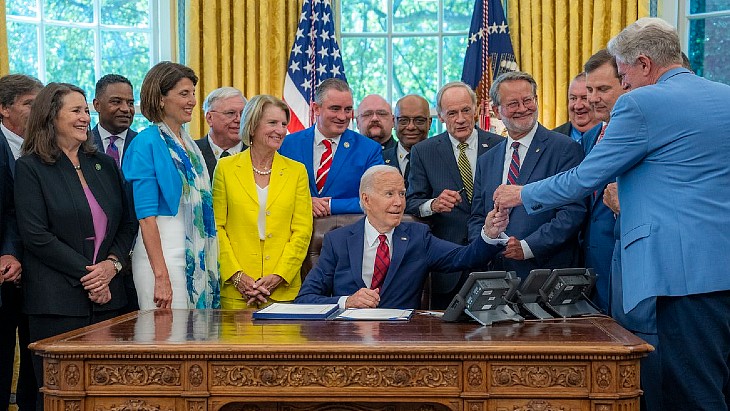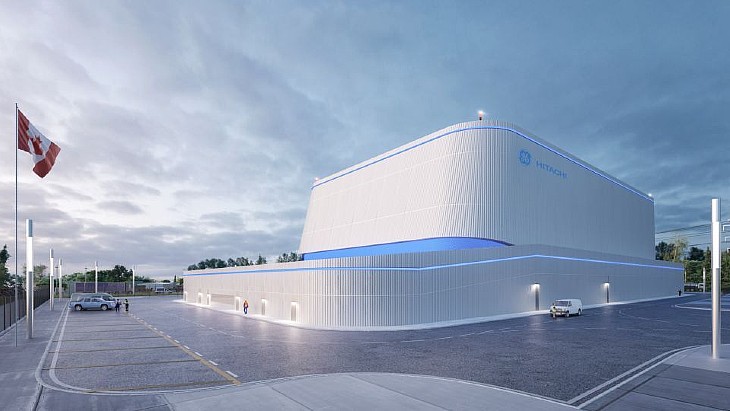IAEA seeks access to all Zaporizhzhia turbine halls on same day

In the latest update on the situation at the six-reactor plant, which has been under Russian military control since February 2022, the IAEA says the request has yet to be approved "and the team can only confirm the status of one turbine hall at a time". They are also "continuing to request access to the rooftops of reactor buildings 1, 2, 5 and 6, which they had expected to be granted this week".
IAEA Director General Rafael Mariano Grossi said "we will insist until we get the access we need in order to monitor compliance" with the five safety principles agreed at the United Nations earlier this year - which includes the plant not being used as storage or a base for heavy weapons.
Meanwhile, the Russian operators of the plant have again moved unit 4 to so-called hot shutdown - where it can produce steam for various safety functions at the site - after completing repairs to a water leak detected in mid-August. Unit 6, which had been moved to hot shutdown while unit 4 was repaired, has now returned to cold shutdown.
The State Nuclear Regulatory Inspectorate of Ukraine has said that all six reactors should be in a cold shutdown state for safety reasons, and the IAEA has been urging the operators to look into other options, such as using generators, to produce the steam needed to cover the plant's requirements.
Wednesday also saw the latest rotation of the IAEA team at the plant - the 12th since they established a permanent presence in September last year. Because of the location of the plant, the IAEA experts have to cross the frontline between Russian and Ukrainian forces on their way in and out of the plant and Grossi added that the agency has now acquired armoured vehicles funded by Japan, and been able to hire drivers and security personnel thanks to funding from Germany, to help "ensure the safety of IAEA staff during rotations to and from the plant - they will also allow us to conduct our missions with full logistical independence".









_88592.jpg)
_66488.jpg)

